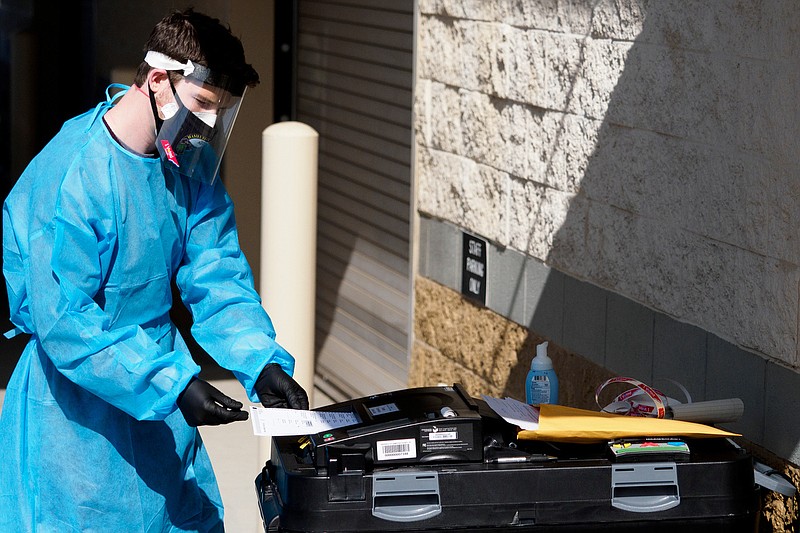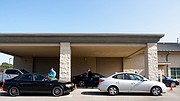Despite the intense national and local attention on the election Tuesday, local officials continued efforts to stop the spread of COVID-19 in the community.
Cases surged in Hamilton County in October, mirroring numbers of the worst peak this summer, and the trend continues into early November.
People sick with the virus or quarantining were able to vote Tuesday at the Hamilton County Election Commission. By 3 p.m. Tuesday, around 40 people had used the special line to cast their ballot, said Kristi Berry, office manager at the election commission.
People scheduled appointments to cast their votes. Workers from the Hamilton County Health Department staffed the line to bring people their ballots, then take them to an outdoor machine to be counted. The polls were open from 8 a.m. to 8 p.m., like other polling locations.
"Things are going much better than planned even with the added stress of COVID," Berry said.
On Tuesday, the health department reported 106 new cases with 84 hospitalizations. The new data marked an increase in new cases after three days of declining numbers. The department has reported 100 or more new cases in 11 of the past 14 days.
Rae Bond, chair of the Joint COVID-19 Task Force, said during a news briefing on Tuesday that both Chattanooga Mayor Andy Berke, a Democrat, and Hamilton County Mayor Jim Coppinger, a Republican, continue their "staunch support" for the countywide face mask mandate.
Berke and Coppinger have joined local hospitals and medical leaders in personally asking other mayors and county executives across the region to consider implementing their own face mask requirements, Bond said. Case surges in surrounding counties without mandates are fueling near-record-high COVID-19 hospitalizations in Hamilton County, and the state has already surpassed its previous hospitalization record.
"We're going to continue [asking] others in the region to follow Hamilton County's lead on this issue. We think that's really important as winter approaches," Bond said. "We want to be sure to maintain adequate hospital capacity, and a mask mandate really is having an impact."
Bond cited a recent study from Vanderbilt University, which found that hospitals treating more patients from areas without mask mandates are seeing much higher rates of COVID-19 patients than hospitals that treat mostly patients from areas that require face masks in public.
Gov. Bill Lee delegated the power to require face coverings in public to county mayors and maintains that decision is best left up to local governments despite saying that face masks are essential to controlling the spread of COVID-19. Coppinger is the only county mayor in the Chattanooga region to issue a mask mandate thus far.
Although Hamilton County hospitals have seen a recent rise in cases, they're currently managing the patient load and are encouraging patients not to delay medical care, Bond said.
Bond, whose voting precinct is in the Ridgeside neighborhood, said that she was impressed with the precautions implemented to keep voters safe at the polls. However, if anyone feels concerned about a potential exposure, there remain several options for free COVID-19 testing throughout the community.
Unless they develop symptoms, people should wait a minimum of three to five days before getting tested for COVID-19, because it takes time for the virus to build up to detectable levels.
Contact Elizabeth Fite at efite@timesfreepress.com or follow her on Twitter @ecfite.
Contact Wyatt Massey at wmassey@timesfreepress.com or 423-757-6249. Follow him on Twitter @news4mass.

